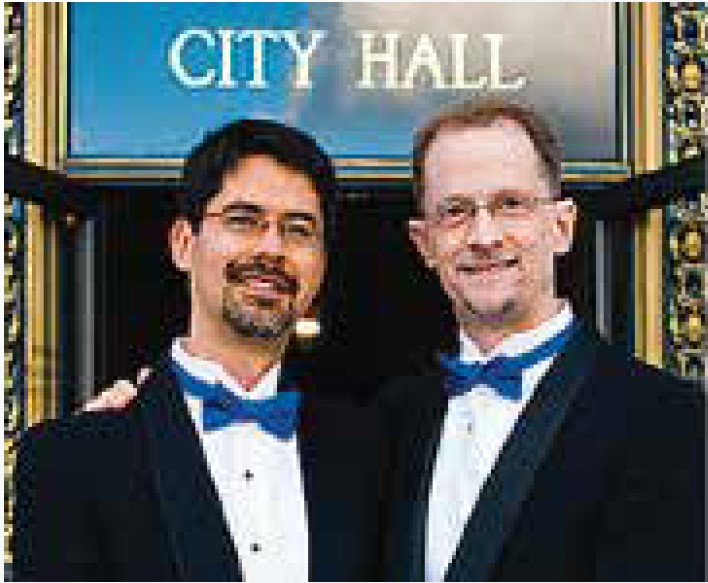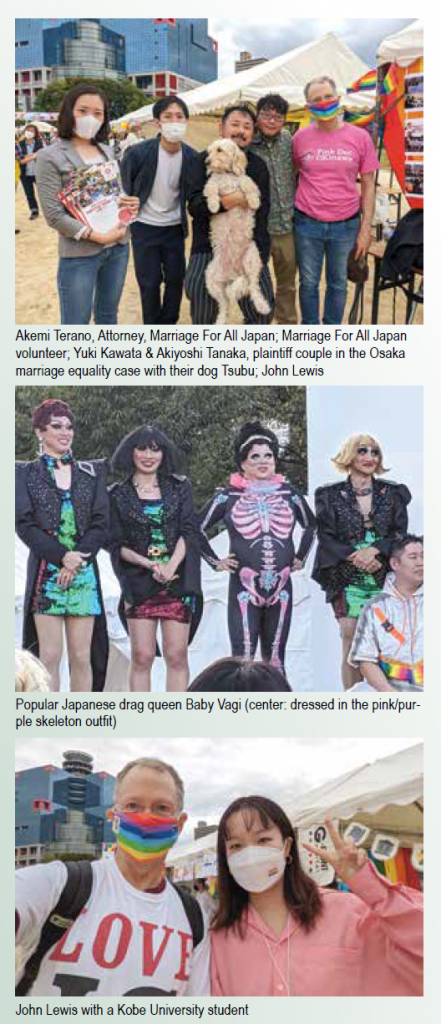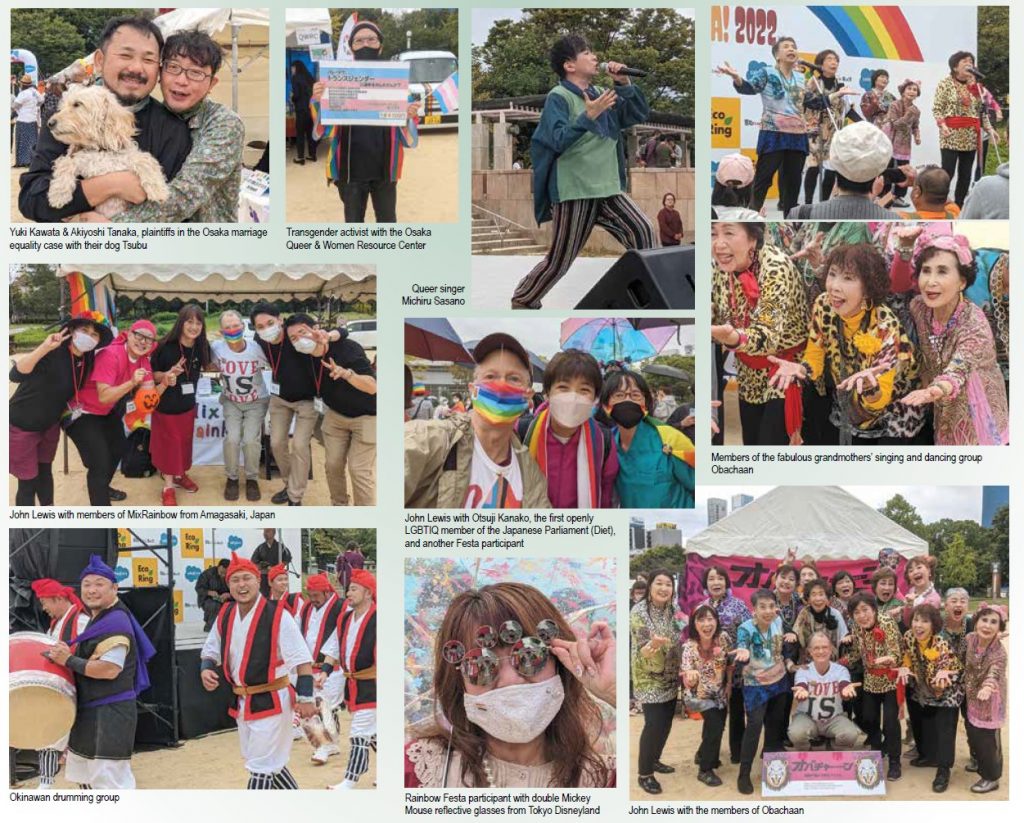
By John Lewis–
“Oh My God Osaka!” Those were the words I heard belted out joyously from the stage at the recent annual Rainbow Festa (or Osaka Pride) on October 8 and 9 by the famous Obachaan, an irrepressible troupe of singing and dancing Japanese grandmothers. Obachaan gained world renown when they released a rap-style video to welcome world leaders to the 2019 G20 Summit in Osaka. They are huge supporters of the LGBTIQ community. Their joy is contagious; it’s impossible not to smile, laugh, and start moving to their music.
Even though the members of Obachaan themselves are not gay, they embody the soul and spirit of the diverse Osaka queer community. They shared the stage with many talented LGBTIQ entertainers, such as the sensational singer Michiru Sasano, traditional Okinawan drummers, and famed drag queen Baby Vagi.

This year’s Osaka Pride was the largest on record, with 20,000 people in attendance, according to Kansai Television. Although that number may seem small compared to events in the U.S. and some other parts of the world, it’s a significant turnout demonstrating substantial progress in Japan, where publicly coming out as LGBTIQ remains difficult for many people.
The Rainbow Festa provides an opportunity for many different parts of the queer community and its allies, both in the Kansai region of Japan where Osaka is located and other parts of central Japan, to come together. One of the most prominent organizations present was Marriage for All Japan, the umbrella group coordinating marriage equality lawsuits across the country. In June, the Osaka trial level court in a clearly illogical opinion ruled against LGBTIQ couples, but plaintiff couples like Akiyoshi Tanaka and Yuki Kawata remain steadfast in their determination as the case moves forward on appeal.
Many groups at the event were devoted to providing opportunities for diverse types of queer people to come together for support and community. They came from many different parts of central Japan, such as the delightful group MixRainbow from Amagasaki, an industrial city near Osaka that is not a tourist destination. The fact that many groups from diverse parts of Japan are forming—and many locales are now organizing their own local Pride celebrations—marks a significant increase in the visibility of LGBTIQ Japanese and demonstrates the desire of Japanese queer people to come together to form community.
Transgender Japanese were also very prominent at the event, with support groups, service providers, and advocacy groups all participating. The Queer & Women’s Resource Center, one of Osaka’s oldest LGBTIQ organizations, promoted next month’s Tokyo TransMarch 2022.
Especially encouraging were the number of student groups present. A group of junior and senior high school students were dedicated to gender freedom in school uniforms, still required apparel in many Japanese schools.

I was particularly struck when I saw the Kobe University booth, featuring a photo of a student holding a “Silence=Death” sign with the pink triangle. Stuart and I, along with many others, had held that same sign over 35 years ago during the height of the HIV/AIDS pandemic. These Kobe University students employed that message today as part of their successful activist campaign to support transgender students’ right to use their chosen names and otherwise be fully respected at the university. Calling themselves the Project for Kobe University for Everyone, the group advocates for diversity and inclusion and not only pressured the university to change its transgender student policies but also make outing a queer person a violation of school policy. If employed more broadly, this type of assertive activism has the potential to advance LGBTIQ rights in Japan like never before.
From students to grannies and everyone in between, I came away from the Rainbow Festa with a heart full of joy and energy and found myself falling in love with the spirit of the city. “OMG Osaka!”
John Lewis and Stuart Gaffney, together for over three decades, were plaintiffs in the California case for equal marriage rights decided by the California Supreme Court in 2008. Their leadership in the grassroots organization Marriage Equality USA contributed in 2015 to making same-sex marriage legal nationwide.
6/26 and Beyond
Published on October 20, 2022
Recent Comments